My good friend’s daughter is suffering from very sore nipples – she just started breastfeeding last week. Are there natural remedies that can help alleviate her pain? Is it possible to prevent them? Thanks so much.
Susun Weed’s response:
Sore nipples heal rapidly, often within a day or two, but it is still easier to prevent them than to heal them. Nipple sprays intended to prevent sore nipples have been shown to be ineffective, but the following Wise Woman remedies are safe and effective. Note: Persistently or suddenly sore nipples may indicate a thrush infection. Further symptoms of thrush include pink, flaky skin and itchy nipples.
PREVENTING SORE NIPPLES
- Continue to nurse. Neither sore nipples nor thrush are helped by discontinuing nursing; in fact, they may be remedied by more frequent nursing.
- Expose the nipples and breasts to the air as much as possible to discourage the growth of thrush. Avoid wearing a bra 24 hours a day. Wear nursing bras with the flaps down whenever possible.
- Expose the nipples and breasts to sunlight for brief periods to strengthen tissues. Increase gradually from thirty seconds in the sun to a maximum of three minutes.
- Olive oil, sweet almond oil, lanolin, or comfrey ointment rubbed into the nipples throughout the latter part of the pregnancy and the beginning weeks of nursing create healthy, flexible tissues very resistant to cracks, tears, and chapping.
- Experiment with different nursing positions until you find those in which you are completely comfortable, with the entire areola (dark area) in the baby’s mouth, nipple centered.
- Offer your breast often. Reducing the number of feedings can make the baby so hungry that it tears at the breast.
- Avoid soap, cologne, deodorant and powder on your nipples or breasts. Do not wash nipples with soap. Soap predisposes the nipples to chapping and cracking.
REMEDIES FOR SORE NIPPLES
• Crushed ice wrapped in a wet cloth, or a frozen gauze pad, applied to the nipples immediately before nursing is a good local pain killer. This cold treatment also helps bring out soft or small nipples and helps baby feed more easily when the breasts are very full.
• Comfrey ointment softens and strengthens nipples at the same time. It is exceptionally soothing to sensitive nipples and rapidly heals any fissures or bruises.
• Yarrow leaf poultices – or yarrow infused oil – provide almost instantaneous pain relief and heal cracked nipples rapidly.
• Any of the [below] poultices described for painful breasts may be used advantageously. Comfrey and marshmallow are especially effective. Many brief poultices work better than one or two lengthy sessions.
- Place a handful of fresh or dried parsley leaves in a clean cotton diaper and tie it closed with a rubber band. Put in a pan of water and simmer for 10 to 15 minutes. Apply the hot (fresh) parsley as a poultice or use the (dried) herb still tied in the diaper as a compress to ease swollen and painful breasts.
- Prepare fresh or dried comfrey leaves the same way as parsley. A hot compress or poultice of comfrey leaves soothes sore nipples, softens engorged tissues, reduces the pain of swollen breasts, and helps unblock tubes and ducts. It is generally considered safe to use comfrey root preparations externally, but nursing mothers may be understandably leery to use them for fear of injuring her infant’s liver.
- A cold poultice of grated raw potato can draw out the heat of inflammation, localize infection and unblock clogged tubes. Grated raw potato is applied directly to the breasts, and covered with a clean cloth. When dry, it is removed and replaced with fresh grated potato.
- Marshmallow roots make wonderful soaks that soothe tender tissues and sore nipples, open clogged ducts and tubes, powerfully draw out infection, and diminish the pain of engorged, inflamed breasts. Steep two ounces of dried marshmallow root overnight in half a gallon of water just off the boil. The texture of the finished brew should be slippery and slimy. Heat as needed, pouring the hot liquid into a sink or basin and soak your sore and aching breasts.
- Infused herbal oils—such as those made from the flowers of calendula, elder, or dandelion, or from the roots of yellow dock—can ease the pain of tender breasts and sore nipples. Buy them ready-made. Or make them yourself: Gently warm a handful of dried or fresh blossoms in just enough olive oil to cover; keep warm for 20 minutes. Strain, cool, and rub into nipples and breasts whenever there is pain or sensitivity.
- The gel from a fresh aloe vera leaf will soothe and heal sore and cracked nipples.
- Calendula ointment is an old favorite to heal and strengthen nipples. CAUTION: Ointments containing antibiotics, steroids and anesthetic (painkilling) drugs are potentially harmful to both mother and infant.
photos: Wise Woman Spiral ©iStockphoto.com / Chuck Spidell | Flutterby ©2001 Wendy Wilkerson
REFERENCES AND RESOURCES
The Complete Book of Breastfeeding, Sally Olds and Marvin Eiger; 1972 Bantam Books
Nursing Your Baby, Karen Pryor; 1973, Simon and Schuster
The Womanly Art of Breastfeeding, La Leche League, 1963.
Breastfeeding Basics, Cecelia Worth; 1983 McGraw Hill
La Leche League, 9616 Minneapolis Ave., Franklin Park, IL 60131
Aftercare: Sharon Hamilton; Babies Grow on Milk and Kisses; Arny Galblum Booklets available from Emma Goldman Clinic for Women, 715 Dodge Street, Iowa Cily, IA 52240
The Way of Herbs, Michael Tierra; Unity Press

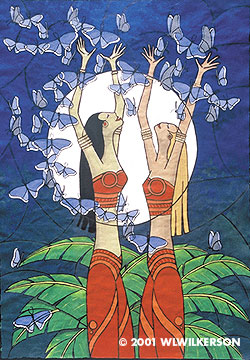

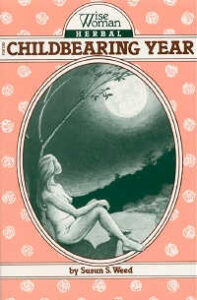
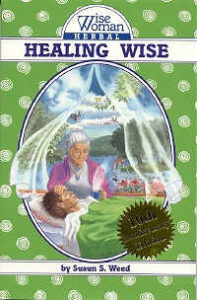
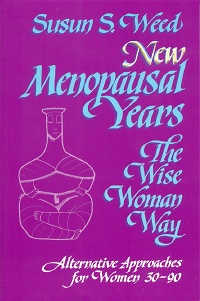
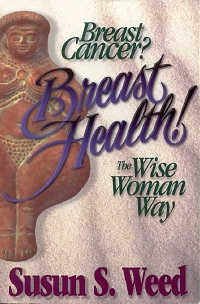
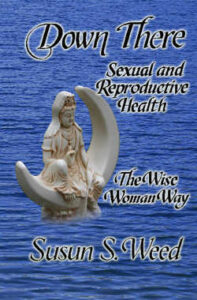
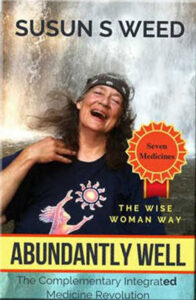



0 Comments